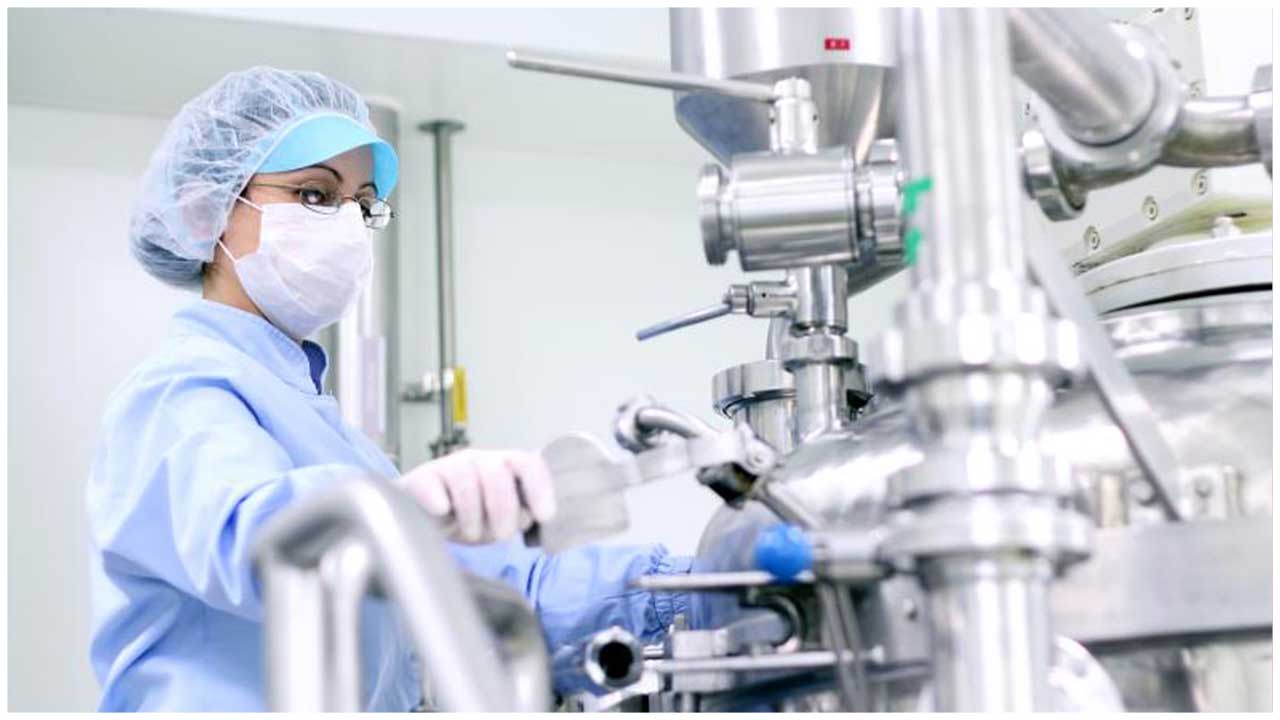The results of studies by a University of Manchester-led team suggest that it may be possible to diagnose and potentially even monitor the progression of Parkinson’s disease (PD) by analyzing compounds present on the surface of the skin. Using high-resolution mass spectrometry (MS) techniques to profile the complex signature of metabolites in sebum samples from more than 200 participants with and without Parkinson’s disease, the researchers identified novel diagnostic sebum-based biomarkers for Parkinson’s disease and uncovered subtle, but fundamental changes as the disease progress.
The results point to the future development of a simple, noninvasive skin swab test for diagnosing and potentially monitoring the development of PD. Such a test might also be used in clinical trials to help researchers measure whether experimental treatments are able to slow, stop, or even reverse disease progression.
Commenting on their studies, research lead Perdita Barran, PhD, professor of mass spectrometry at the University of Manchester, said: “We believe that our results are an extremely encouraging step towards tests that could be used to help diagnose and monitor Parkinson’s. Not only is the test quick, simple, and painless but it should also be extremely cost-effective because it uses existing technology that is already widely available.” Barran and colleagues at Manchester, together with collaborators at Vrije Universiteit Amsterdam, the University of Edinburgh, and Liverpool University, reported on their work, in a paper in Nature Communications, which is titled, “Metabolomics of sebum reveals lipid dysregulation in Parkinson’s disease.”
Parkinson’s disease is a neurodegenerative disorder that affects more than six million people globally, and is second only in prevalence to Alzheimer’s disease, the authors wrote. Parkinson’s disease typically develops gradually and it may take months or years before the symptoms become obvious enough for an individual to visit their physician. While a DaTscan is used to help specialists confirm the loss of dopamine-producing cells that are associated with Parkinson’s disease, similar neuronal loss may also occur in some other, rarer neurological conditions.
And with no molecular test for the condition, a Parkinson’s disease diagnosis is generally made by a neurologist, based on a combination of symptoms such as tremor, slowness, stiffness, and balance issues. “… clinical manifestations normally present as a combination of one or more of the four cardinal signs of PD, namely; bradykinesia, resting tremor, rigidity, and postural instability,” the team noted. Diagnosis is further complicated because many of the symptoms of Parkinson’s disease can also overlap with other conditions, especially in the early stages when progression is gradual and symptoms are more subtle. And by the time a formal diagnosis is made, some 60–80% of dopaminergic neurons in the brain may already have been lost.
Up to 60% of people with Parkinson’s disease have a condition known as seborrhoeic dermatitis, which presents as “oily skin.” This results when the sebaceous glands in the skin dermis produce and secrete an excess of sebum. This biofluid is rich in lipid-like molecules, and while it is commonly studied for dermatological conditions such as acne, sebum is rarely studied in the context of disease diagnostics, the investigators added. Changes in levels of metabolites in blood and cerebrospinal fluid, and the effects of these changes of metabolic pathways, have been studied extensively for PD diagnostics, the authors noted. “The use of sebum as a diagnostic tool for PD provides an exciting prospect from which a noninvasive and inexpensive test could be developed to detect the onset of this disease.”
For their newly reported studies, Barran, together with colleagues including clinical lead Monty Silverdale, MD, PhD, professor at Salford Royal Foundation Trust, and collaborators in the U.K. and the Netherlands, recruited 274 people with and without Parkinson’s disease, including both treatment-naïve patients, and those who were taking medication for the disorder. The team took samples of sebum from the upper back of each participant, for analysis. Using different mass spectrometry methods, they identified 10 metabolites that were either elevated or reduced in sebum samples from people with Parkinson’s disease, providing new insight into understanding how the condition develops, and linking lipid dysregulation to altered mitochondrial function.
These metabolite signatures allowed the scientists to distinguish people with Parkinson’s disease with 85% accuracy. “The overlap of ten metabolites from separate statistical analyses for drug naïve PD and medicated PD strengthens the evidence, that these compounds are associated with PD and not associated with dopaminergic medication,” the team noted. They also carried out pathway enrichment analysis to further investigate changes in metabolic pathways with respect to disease onset and progression, and identified changes in lipid processing and pathways relevant to mitochondria. “Pathway enrichment analysis shows alterations in lipid metabolism related to the carnitine shuttle, sphingolipid metabolism, arachidonic acid metabolism, and fatty acid biosynthesis,” they wrote. Interestingly, problems with mitochondria are one of the hallmarks of Parkinson’s disease.
Parkinson’s disease swab test [University of Manchester]
The findings suggest that this “world first” testing strategy could not only be useful in diagnosing Parkinson’s, but also in monitoring the development of the condition. And while “insufficient clinical data is available for these patients to hypothesize on the ability of a sebum analysis to help stratify disease progression,” the team acknowledged, “… it should be included in further studies.”
The University of Manchester researchers suggested that the results could lead to a definitive test to diagnose Parkinson’s accurately, speedily, and cost-effectively. The team is now looking for funding to further develop the test and explore the potential for using the test to “stratify” patients. Working with the University of Manchester Innovation Factory, the team has patents filed for the diagnostic techniques and is planning to create a spin-out company to commercialize the tests.
Barran commented, “We are now looking to take our findings forwards to refine the test to improve accuracy even further and to take steps towards making this a test that can be used in the NHS and to develop more precise diagnostics and better treatment for this debilitating condition.” The newly released results support earlier findings by the same team, published in ACS Central Science, indicating that volatile compounds on the skin can be used to diagnose Parkinson’s disease. Barran and colleagues at the University of Surrey, and other U.K. institutions, are also investigating whether sebum profiles could be harnessed for the development of tests for COVID-19, and other conditions, and published study results in this field of research, just last week, in EClinicalMedicine.
The newly reported work on sebum markers for Parkinson’s disease has been funded by Parkinson’s UK and the Michael J. Fox Foundation as well as the University of Manchester Innovation Factory. The work was originally funded following the suggestion that it may be possible to detect Parkinson’s disease using smell. Working with Tilo Kunath, PhD, group leader at the University of Edinburgh, Joy Milne—whose husband was diagnosed with Parkinson’s at the age of 45—demonstrated an incredible ability to distinguish a distinctive Parkinson’s odor in individuals using her sense of smell—even before symptoms emerge in those affected.
Parkinson’s UK recently carried out a survey of more than 2,000 people with Parkinson’s disease, in which 26% reported that they were misdiagnosed with a different condition before receiving the correct Parkinson’s disease diagnosis. David Dexter, PhD, associate director of research at Parkinson’s UK, said: “We are proud to have part-funded this groundbreaking research which marks a significant step towards developing a quick and accurate test that can not only revolutionize the way we diagnose Parkinson’s, but also allow us to monitor how this debilitating condition progresses. Every hour, two more people in the U.K. are diagnosed with Parkinson’s and a significant portion of these people may well have been misdiagnosed with, and treated for, another condition before receiving their correct diagnosis … with this innovative test, we could see people being diagnosed quickly and accurately enabling them to access vital treatment and support to manage their Parkinson’s symptoms sooner.”

 Now there would be an easy way to test for Parkinson's disease in elderly
Now there would be an easy way to test for Parkinson's disease in elderly












.jpeg)

.jpeg)










.jpg)




.jpg)

